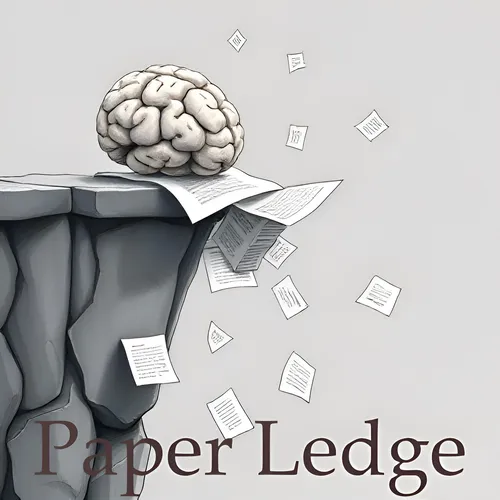Computation and Language - Evaluating Memory in LLM Agents via Incremental Multi-Turn Interactions
- Author
- ernestasposkus
- Published
- Tue 08 Jul 2025
- Episode Link
- https://www.paperledge.com/e/computation-and-language-evaluating-memory-in-llm-agents-via-incremental-multi-turn-interactions/
Hey PaperLedge crew, Ernis here, ready to dive into some fascinating research! Today, we're talking about the memories of AI – specifically, how well Large Language Model agents, you know, the brains behind chatbots and AI assistants, remember things and use that memory in conversations and tasks.
Now, usually, when we test these AI agents, we focus on how well they can reason, plan, and execute. Think of it like testing their ability to solve a puzzle, build a Lego set, or follow a recipe. But there's another crucial piece of the puzzle: memory. How well can these agents remember past conversations, update their knowledge with new information, and retrieve that information when they need it?
Imagine you're chatting with a friend over weeks. You expect them to remember details about your life, like your pet's name or your favorite hobby. That's the kind of memory we're talking about for AI agents. The researchers call these memory-equipped AIs, quite aptly, memory agents.
The problem is, the current tests for AI agents don't really focus on this kind of long-term, interactive memory. They might test how well an AI can answer questions about a book (a static, unchanging context), but that's not the same as remembering details from a dynamic, evolving conversation.
Think of it like this: existing tests are like asking an AI to memorize a phone book. It's long, but it doesn't change. What we really need to test is how well an AI can remember details from a soap opera, where the plot twists and characters evolve every episode!
"Existing datasets either rely on limited context lengths or are tailored for static, long-context settings...which do not reflect the interactive, multi-turn nature of memory agents."
So, these researchers identified four key skills that a good "memory agent" should have:
- Accurate Retrieval: Finding the right information when needed. It's like quickly locating the right file on your computer.
- Test-Time Learning: Learning and remembering new information during a conversation or task. Think of it as learning a new person's name immediately after you meet them.
- Long-Range Understanding: Connecting information from different parts of a long conversation or series of events. It's like following a complex plot in a novel.
- Conflict Resolution: Dealing with contradictory or updated information. Imagine someone telling you something is true, then later saying it's false - how do you reconcile that?
To address this gap, the researchers created MemoryAgentBench, a new benchmark specifically designed to test these four memory skills. It's like a new set of exams for AI agents, designed to see how well they truly remember things in realistic, interactive scenarios.
They used a combination of existing datasets, tweaked to be more challenging, and brand-new datasets they created themselves. This new benchmark tests memory in interactive scenarios, just like real-world conversations.
Then, they put a bunch of different AI agents through the MemoryAgentBench test. These agents ranged from simple systems that just look at the recent conversation history to more advanced agents with external memory banks and tools. Imagine giving the same test to a student who can only use their brain versus a student with access to notes, a calculator, and the internet.
The results? Well, it turns out that even the most advanced AI agents still struggle with some of these memory challenges. They might be good at retrieving information, but struggle with resolving conflicting information, or vice versa. This highlights the need for more research into how to build truly robust and reliable memories for AI agents.
Why does this matter? Well, for everyday users, it means more helpful and less forgetful AI assistants. Imagine an AI that truly remembers your preferences and can adapt to your needs over time. For businesses, it could lead to more efficient and personalized customer service. And for researchers, it opens up a whole new avenue for exploring the complexities of AI memory.
So, what do you think, PaperLedge crew? Here are a couple of questions that came to mind for me:
- If AI agents can't reliably resolve conflicts in information, how can we trust them to make important decisions?
- What innovative memory mechanisms could we develop to truly mimic human-like memory capabilities in AI agents?
Let me know your thoughts! This is Ernis, signing off. Keep learning!
Credit to Paper authors: Yuanzhe Hu, Yu Wang, Julian McAuley
